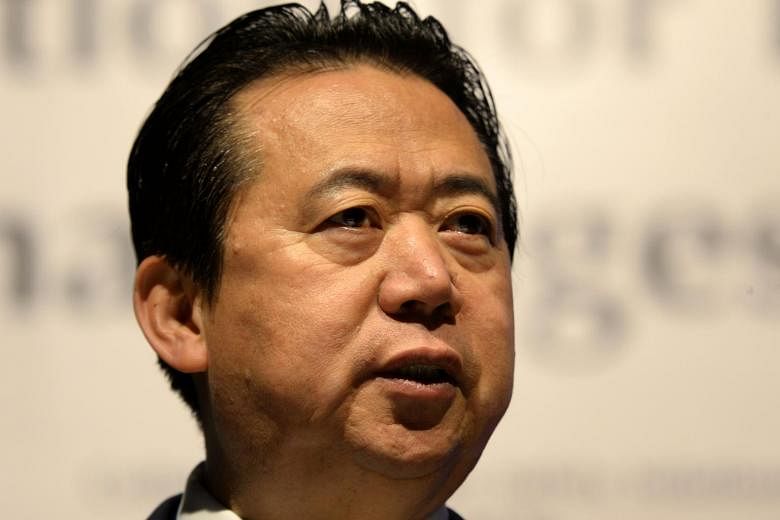SINGAPORE - No single country or profession can rely solely on itself to tackle cyber-transnational and -organised crimes, said Interpol president Meng Hongwei. Instead, partnership is needed to them.
"In the future, the threats from illicit use of technology and cyberspace will continue expanding. Criminals will continue to exploit the exponential growth of (the) Internet and social communication platforms to materialise their abhorrent intents," said Mr Meng whose organisation oversees the network of police forces from 190 countries.
He was speaking at the opening address on Tuesday (July 4), the first day of the three-day Interpol World 2017 Congress at the Suntec Singapore Convention & Exhibition Centre.
Addressing congress delegates, including ambassadors, international and regional organisations, and security industry players, Mr Meng highlighted the need for partnership to fight cyber and transnational crimes.
"We wish to stay one step ahead of criminals by enhancing the capabilities of all stakeholders to confront increasingly ingenious and sophisticated challenges," he said.
Mr Meng noted areas that stakeholders could work on, including speedy and efficient information sharing across platforms to go beyond the traditional information exchange between law enforcement agencies. He added that information sharing between law enforcement, financial institutions and security service providers is also key.
He added that there was a need to raise awareness among the public and vulnerable sectors through training of staff and officers with the right expertise.
"Only with a multi-stakeholder approach (can) we stand firm to counter global threats. I am confident that there will be more cooperation among all of us in diversified areas including information sharing, innovation, training and awareness campaigns," said Mr Meng.
The impact of globalisation, technological revolutions and the borderless nature of cyberspace has caused global threats to evolve such that criminals exploit the convenience, mobility and anonymity of online platforms, he said.
"We will face new challenges that may be out of our imagination in terms of scale, speed and influence. The recent WannaCry saga well demonstrates to us the damage and (despicable nature) of cybercrime," said Mr Meng, referring to May's global WannaCry ransomware scare.
"We are all part of the world who are facing the same threats in the international arena."


